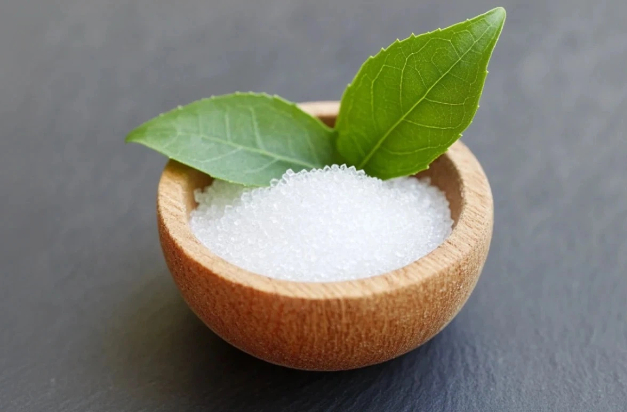







Content Menu
● Biological Activities Benefiting Digestion and Overall Health
● Possible Side Effects of Stevia
● Stevia Compared to Other Sweeteners
● How to Avoid Bloating When Using Stevia
● Frequently Asked Questions (FAQs)
>> 1. Can Stevia cause bloating on its own?
>> 2. Are there any other common side effects of stevia?
>> 3. Is stevia safe for people with diabetes?
>> 4. Does stevia affect gut bacteria?
>> 5. How can I avoid bloating when consuming stevia-based products?
Stevia, a natural sweetener derived from the Stevia rebaudiana plant, has gained worldwide popularity as a sugar substitute that offers a zero-calorie alternative with multiple health benefits. While stevia is prized for its sweetness—being approximately 200 to 300 times sweeter than sucrose—it is important to explore whether consuming stevia may cause digestive issues such as bloating, which some users report. This article comprehensively addresses the question "Can Stevia Cause Bloating?" and provides an in-depth look at stevia's composition, health benefits, potential side effects, including bloating, and answers frequently asked questions about this sweetener.

Stevia is a perennial shrub native to South America, particularly Brazil and Paraguay. The sweetness of stevia mainly comes from steviol glycosides, compounds extracted and refined from the leaves of the Stevia rebaudiana plant. These glycosides—primarily stevioside and rebaudioside A—are intensely sweet and used globally to sweeten foods and beverages without adding calories or affecting blood sugar levels significantly.
Stevia preparations include fresh or dried leaves, leaf powders, and highly purified extracts. It has been consumed for centuries, first used by the indigenous Guarani people to sweeten beverages, and more recently adopted in commercial products by companies such as Coca-Cola.
The question of whether stevia can cause bloating relates intimately to its effects on the digestive system. Some stevia products contain sugar alcohols (such as erythritol), which are known to cause digestive discomfort, including bloating, gas, and cramping when consumed in large amounts. However, pure stevia extracts do not typically cause these symptoms.
While steviol glycosides have generally been considered safe and well-tolerated, some people may experience gastrointestinal symptoms when consuming stevia, especially if the product is mixed with sugar alcohols or other additives. Symptoms reported include:
- Nausea
- Indigestion
- Cramping
- Bloating
These symptoms are more commonly linked to sugar alcohols rather than stevia itself. Nonetheless, individual sensitivity varies.
Stevia leaves contain more than just sweet compounds. They also have proteins, carbohydrates, dietary fibers, oils, vitamins, phenolic compounds, and minerals. These contribute to stevia's antioxidant, anti-inflammatory, and antimicrobial properties, which may positively influence digestive and overall health.
Stevia has demonstrated potential protective effects for the digestive system by reducing oxidative stress and inflammation. Studies reveal that stevia compounds may positively alter gut bacteria and have anti-inflammatory effects that could benefit immune-related digestive disorders. However, the interplay between stevia and gut microbiota warrants further human research.
Most studies conclude that highly purified stevia extracts are safe when consumed within the acceptable daily intake limits (4 mg/kg body weight of steviol equivalents). Side effects reported in some cases include:
- Gastrointestinal issues (more often linked to sugar alcohols mixed with stevia)
- Low blood pressure in susceptible individuals
- Possible hormone (endocrine) interactions due to molecular similarity with steroids
- Allergic reactions in sensitive individuals (rare)
Regarding bloating specifically, the main culprit in stevia products related to digestive upset is sugar alcohols, not stevia glycosides themselves.

Compared to artificial sweeteners and sugar alcohols, stevia offers many advantages, including negligible impact on blood glucose and insulin levels, antioxidant properties, and a good safety profile. However, some people find that sugar alcohols—often combined with stevia—may cause bloating and gas, which is less common with pure stevia extracts.
1. Choose pure stevia extracts without sugar alcohols such as erythritol or xylitol.
2. Start with small doses to observe tolerance.
3. Stay hydrated as fiber and sweeteners sometimes alter digestion.
4. Read ingredient labels carefully to avoid additives that may cause digestive distress.
5. Consult a healthcare provider if experiencing persistent symptoms.
Stevia itself—specifically the purified steviol glycosides—is unlikely to cause bloating in most people. Reported cases of bloating are generally associated with sugar alcohols or additives present in many stevia-containing products rather than the stevia extract itself. Stevia offers significant health benefits, including antioxidant, anti-inflammatory, anti-diabetic, and anti-hypertensive effects, making it a valuable natural sweetener choice for many, especially those managing blood sugar or weight. To minimize digestive discomfort, choosing high-purity stevia products and monitoring individual tolerance is recommended.

Pure stevia glycosides are generally not associated with bloating. Digestive discomfort is usually linked to added sugar alcohols in some stevia products.[1][2]
Some people may experience nausea, low blood pressure, or allergic reactions, but these effects are rare and depend on individual sensitivity.[2][1]
Yes, stevia does not raise blood sugar levels and is considered safe and beneficial for people with diabetes.[2]
Preliminary studies suggest stevia may alter gut microbiota, but more human research is needed to understand its effects fully.[2]
Choosing pure stevia without sugar alcohols, starting with small amounts, and drinking enough water can help minimize digestive discomfort.[1]
[1](https://www.medicalnewstoday.com/articles/319837)
[2](https://pmc.ncbi.nlm.nih.gov/articles/PMC8600158/)
